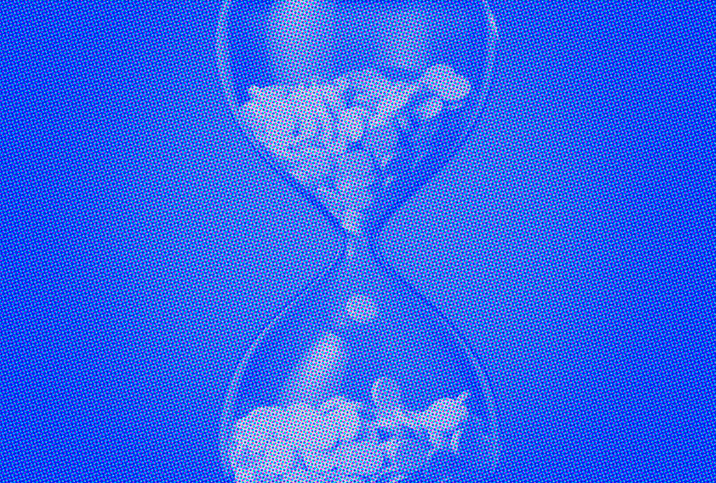What Therapists Want You to Know Before Starting Antidepressants

It can be hard to decide to take antidepressants. There's the social stigma, worries about side effects, and maybe something niggling in the back of your mind that your aunt's coworker said when she stopped taking them. But you've tried everything else and it hasn't worked, from regular exercise to joining an art class to meet new people.
Now your doctor suggests a course of antidepressants. But what does that entail? What preparations should I make?
Before you start taking antidepressants
Antidepressants are a literal lifesaver for many people, but there are often side effects and you should do your research before you start taking them.
"Get a comprehensive workup before starting meds," said Rhonda Mattox, M.D., a psychiatrist, coach and mental health activist in Little Rock, Arkansas.
Here are the strategies Mattox recommended following before seeking out antidepressants:
- A thorough checkup with labs is needed. You should be tested for thyroid and endocrine disorders and diabetes, all of which can mimic depression.
- If symptoms of depression began after you started a new medication, talk to your doctor to make sure you're not experiencing side effects.
- You should consider the fact that depression is a symptom of bipolar disorder and have your doctor assess you for bipolar disorder before beginning an antidepressant. If you have undiagnosed bipolar disorder, taking an antidepressant has the potential to worsen mania symptoms and affect your mood, sleep patterns and decision-making ability. It can also contribute to rapid cycling between highs and lows, with fewer symptom-free days in between.
Make sure to ask your healthcare providers any questions before you agree to start a trial of antidepressants.
Do you have to keep taking them forever?
Some people are worried that if they begin taking antidepressants, they will have to continue taking them for years. They're concerned they won't be able to stop once they feel better.
Vecheslav Fedorchenco, M.D., a psychiatrist at Heading Health in Texas, explained his long-term plan for his patients.
"For someone with prominent symptoms of depression, we first want to make sure the person is in remission before removing medication," he said. "This means that for about two months, the symptoms are either completely absent or minimal and don't really interfere with day-to-day activities. Typically after that, we wait another six months before stopping the medication."
Although there are patients who have been taking antidepressants for multiple years, as long as a decade, there has been no clear research to quantify long-term risks.
Don't stop taking antidepressants on your own
Once you begin taking antidepressants, it's natural to want to stop as soon as you can, especially if you start to feel better or the side effects are frustrating. But the better strategy is to keep going until your doctor tells you that it's safe to stop.
"We want to make sure that symptoms do not come back," Fedorchenco said. "There is some evidence that says stopping antidepressants too soon might put a person at a higher risk of developing the symptoms again."
Together, you and your healthcare provider can make a plan to minimize or avoid relapse.
Additionally, abruptly stopping antidepressants can cause unpleasant symptoms, often called discontinuation syndrome. While this isn't a dangerous condition, it can be distressing.
Symptoms of discontinuation syndrome are similar to the initial side effects of taking antidepressants:
- A return of depression symptoms, including anxious feelings, irritability, becoming manic or suicidal.
- Brain zaps, a term used to describe a combination of dizziness and "electric" shock sensations in the head.
- Digestive problems, such as nausea and vomiting, diarrhea or loss of appetite.
- Dizziness or lightheadedness.
- Sleep changes, such as difficulty sleeping or bad dreams.
- Temperature dysregulation, such as excessive sweating and feeling prickly.
Can antidepressants increase the risk of suicide?
Drugs that may have potentially serious consequences often carry a "black box" warning. The warnings are literally outlined in a black box at the top of the prescription inset. These are the most severe warnings conferred by the U.S. Federal and Drug Association (FDA).
Antidepressants often include a black box warning about suicide.
It's worth noting that many of the conditions treated with antidepressants—such as post-traumatic stress disorder, obsessive-compulsive disorder and generalized anxiety—are also associated with an increased risk of suicide.
In 2004 the FDA instructed antidepressant manufacturers to change the labeling of their products to include a black box warning of possible increased risk of suicidal ideation or behavior, particularly during the first few months of treatment or when there is a significant change of dosage. This label applies to antidepressants prescribed to children, adolescents and adults under the age of 24.
There is no firm evidence that proves that antidepressants increase the risk of suicide in young people. Some research shows a link, but other research doesn't. However, since a consequence as serious as suicide, the FDA opted to require the warning.
In general, it's important for patients and their support teams—parents, friends, partners and caregivers—to be alert for any signs of increased agitation, restlessness, anxiety or sleeplessness. These symptoms should be reported to the patient's healthcare provider, especially if there's an indication of a negative reaction to a new prescription or dosage change.
Tips from psychiatrists about living with antidepressants
"If you have concentration issues and need more energy and a decreased appetite, there are antidepressants like bupropion (Wellbutrin) that are likely to provide some additional measure of energy. Take those first thing in the morning so your energy is enhanced," Mattox said. "Be mindful not to take bupropion or Prozac at night or you may be up all night."
She noted that the best strategy is to think about how to make the side effects work for you. Be mindful of the time of day you take your medicine so you benefit from the side effects.
"If you have trouble sleeping and have lost your appetite, lean toward an antidepressant with sedating properties that will stimulate your appetite, perhaps mirtazapine (Remeron) or Paxil CR. Take that at night so you can benefit from the sedation and get rest," she said.
Fedorchenco said the biggest challenge for his patients is typically remembering to take the medication every day.
"Some antidepressants have a short half-life and get out of the bloodstream fairly quickly. Skipping even one dose of such medication can be unpleasant," he said.
"There's more than one approach to treating someone with depression," said Darren Fred, M.D., a psychiatrist working for Heading Health in Texas. "Medication may help, and they may also need different types of support, such as support from a therapist or social worker. For those with major depression that becomes treatment-resistant, their doctors may encourage them to explore interventional options beyond traditionally prescribed medications."


















